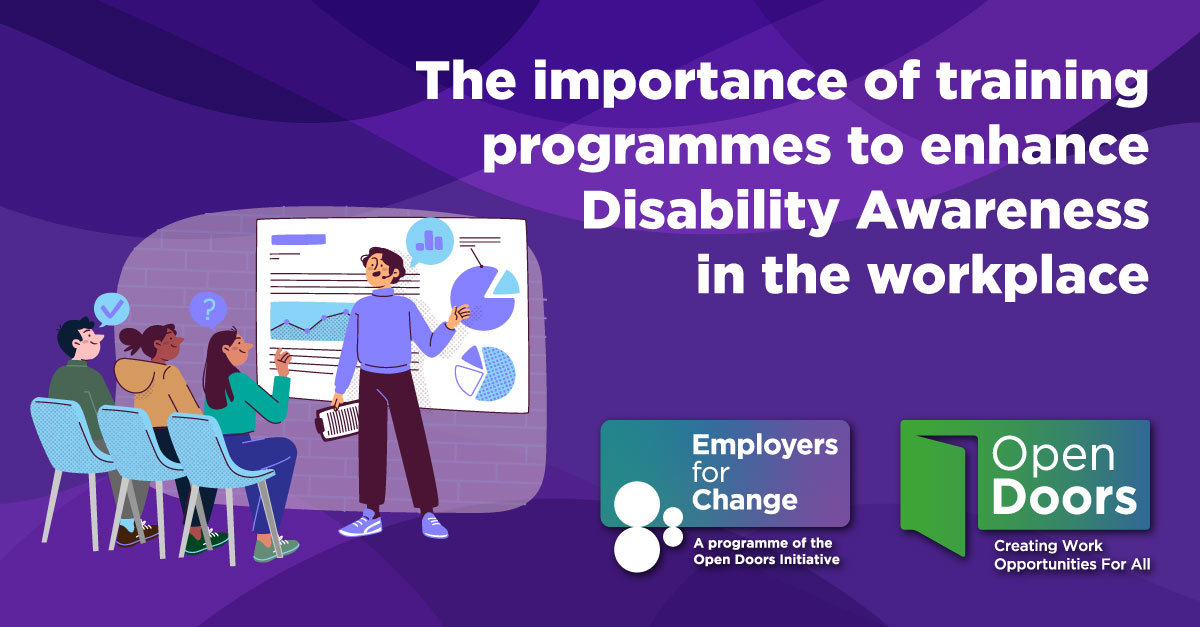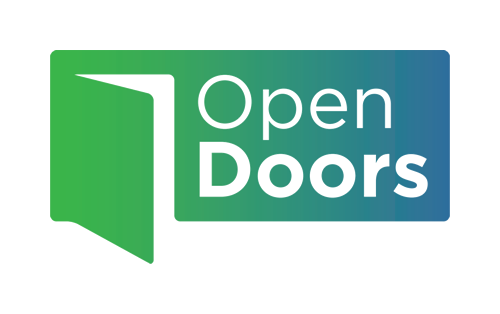
Creating an inclusive workplace is not just a moral responsibility; it is a strategic imperative for organisations aiming to foster innovation, collaboration, and employee engagement. Disability awareness training programmes are vital tools for breaking down barriers, reducing involuntary bias, and ensuring that employees with disabilities can thrive.
In 2022, the Irish Human Rights and Equality Commission published a national poll that highlighted the inequalities and barriers faced by people with disabilities. It shows that "More than 8 in 10 Irish people (83%) agree that people with disabilities face barriers to participating in Irish life, while more than half (54%) say that disabled people do not receive equal opportunities in terms of employment".
A report from the Chartered Institute of Personnel and Development (CIPD) HR Practices in Ireland Survey 2021 states that “Only 34% reported proactively undertaking inclusion and diversity awareness raising activity with employees, a relatively low number and a smaller percentage had appointed employee resource groups, indicating that involving employees tended to be less common than management led policies”.
All these statistics show that our society is aware of the challenges and barriers faced by people with disabilities in general, but little is done in the workplace.
Why Disability Awareness Training Matters
Workplace inclusion does not happen by chance—it requires deliberate effort, investment, and training. Workplace disability awareness training programmes are vital tools for breaking down barriers, reducing involuntary bias, and ensuring that employees with disabilities can thrive. These awareness training programmes equip employees and employers with the knowledge and skills to create an inclusive environment and help them identify gaps which are difficult to notice. Let's explore the significance of these programmes:
- Combating Bias: Most workplace discrimination against people with disabilities stems from involuntary bias rather than intentional actions. Training helps address these biases by fostering empathy and understanding.
- Legal Compliance: Programmes often cover legal obligations under frameworks like the Employment Equality Acts 1998-2015, Equal Status Acts 2000-2015, The Safety, Health and Welfare at Work Act 2005 and the Disability Act 2005; all of which ensure that workplaces meet accessibility standards and avoid discrimination.
- Boosting Engagement: Inclusive workplaces lead to higher employee satisfaction and engagement. Employees who feel valued are more motivated and productive.
If an organisation wants to maximise the impact of disability awareness training, they should adopt programmes that are interactive, comprehensive, and tailored to their specific needs. Here are key elements of effective initiatives:
- Holistic Curriculum: Training should address visible and invisible disabilities (e.g., chronic illnesses or mental health conditions), breaking stereotypes about what disability entails. It should also educate participants on disability etiquette, communication strategies, and workplace accommodations.
- Leadership Involvement: Engaging leadership in disability training ensures buy-in from the top. Leaders can champion inclusion initiatives and model behaviour for others.
- Measuring Impact: Organisations should track progress through feedback surveys or assessments to ensure continuous improvement in creating an inclusive culture
Effective Training Initiatives for Skill Development
Training programmes should go beyond basic awareness and equip employees with practical tools to foster an inclusive work environment. Some of the most effective initiatives include:
- Disability Awareness and Inclusion Training: Covers key concepts such as disability etiquette, inclusive language, and addressing Involuntary bias.
- Reasonable Accommodations Training: Educates HR and managers on legal obligations and best practices for supporting employees with disabilities.
- Accessible Recruitment Training: Helps recruiters and hiring managers implement inclusive hiring practices.
- Leadership Training for Disability Inclusion: Prepares managers and executives to champion disability initiatives and promote an inclusive workplace culture.
- Allyship and Employee Resource Group (ERG) Development Training: Empowers employees to create and sustain disability-focused ERGs, ensuring long-term engagement and impact.
How Training Supports Workplace Disability Initiatives and ERGs
Employee Resource Groups (ERGs) play a key role in driving disability inclusion, but they need proper support and direction. Training programmes can help shape ERGs and other disability-focused initiatives by:
- Building Leadership Skills – Training equips ERG leaders with the tools to advocate for employees with disabilities and push for meaningful policy changes.
- Enhancing Awareness Across the Organisation – Well-trained employees are more likely to engage with ERGs and support their initiatives.
- Fostering Inclusive Policies – Training helps ERGs collaborate with HR to develop policies that remove barriers for employees with disabilities.
- Strengthening Recruitment and Retention Efforts – A more disability-aware workforce leads to better hiring and retention outcomes for employees with disabilities.
These trainings are a critical step toward fostering an inclusive workplace where everyone feels valued. Well-designed training programmes not only enhance workplace culture but also boost employee retention and strengthen an organisation’s reputation as an inclusive employer. By investing in disability inclusion training, such as those provided by Employers for Change, employers can better attract diverse talent and build a genuinely inclusive workplace. Integrating these trainings into Employee Resource Groups (ERGs) and broader disability initiatives enables organisations to drive meaningful, lasting change and turn the vision of inclusion into reality.
Learn more about our training programmes and other informative content to help with your disability inclusion plan in the workplace.

